|
Bible Study Tools

Reader's and Buyer's Guide
Author: Henry E. Neufeld
Much of this material parallels that in the Participatory Study Series pamphlet Bible Study Tools. Further information on these Bible study tools can be found by following the links in each section marked For Further Study.
Links for book titles in this document are to purchase the listed title through Amazon.com or to the review page for that book or Bible version on Energion Bookshelf.
The following are some suggested resources for Bible study.
They fall into 7 categories:
Bible Versions
You will need a Bible version that you can understand without having to consult an English dictionary too often.
Watch for further links both to review pages and to specific editions of the various Bible versions.
- For quick reading (overview):
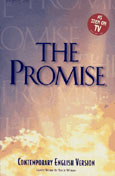 Contemporary English Version (CEV) [Link to CEV review page on Energion Bookshelf]
Contemporary English Version (CEV) [Link to CEV review page on Energion Bookshelf]
3rd or 4th grade reading level; high degree of accuracy within the context of its aim for easy readability.
The Message
Heavily paraphrased with cultural terms translated. This version is fun to read, but will tend to obscure elements of the original cultures.
New Living Translation (NLT)
A more accurate revision of the Living Bible. This is the easy-reading Bible for evangelical Christians.
- For study or reading:
New International Version (NIV)
The always popular NIV is the Bible of choice for evangelical Christians.
Revised English Bible (REB)
This version was translated by an interdenominational committee with interfaith review. It contains some British English which may be hard on American ears.
- For study:
New Revised Standard Version (NRSV)
The Bible of choice for mainline Christians needing a study Bible. The NRSV is often criticized for gender neutral language. It has also received interfaith review.
New American Standard Bible (NASB)
An alternative to the NRSV that is more conservative in its renderings. It is also often a bit less readable. Very literal.
New King James Version (NKJV)
Aimed primarily at fundamentalist and conservative Christians who prefer the manuscripts and text behind the KJV, but prefer updated English. Very literal and often a bit clumsy to read. Includes such disputed passages as Mark 16:9-20, John 7:53-8:11 and 1 John 5:7 & 8 which no other modern version includes.
Study Bibles
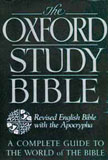
Study Bibles usually contain introductory articles giving Bible backgrounds, information on methodology and overviews of various themes in the Bible. They will also include introductions to each book and comments on difficult passages.
Study Bibles will reflect religious views of editors and authors, some more than others. Care should be taken to distinguish the Biblical text from the comments, and facts and opinions within the comments.
- Oxford Study Bible (REB) [Link to Energion Bookshelf Review]
New Oxford Annotated Bible (NRSV) — Available with or without the apocrypha and some deuterocanonicals.
HarperCollins Study Bible (NRSV) — Available with or without the apocrypha.
Mainstream and liberal notes with acknowledgment of more conservative options.
- The NIV Study Bible (Zondervan)
Evangelical study notes.
- Spirit Filled Life Bible
Aimed at a more charismatic audience.
- Scofield Reference Bible (various editions and versions)
A famous dispensational study Bible, commonly accepted amongst fundamentalists and conservative Christians.
- Ryrie Study Bible (various editions and versions)
Another well-loved conservative study Bible.
Bible Handbooks
Bible handbooks provide historical and cultural information, usually with a number of general articles and then comments on particular books and passages. Using a Bible handbook along with your Bible is like having a Bible with study notes, though usually having a handbook in a separate volume will mean that the handbook contains more exhaustive information.
Bible handbooks, like study Bibles, will reflect religious presuppositions of the editors. Use them carefully.
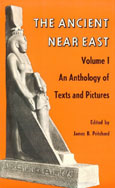 Background Documents Background Documents
Pritchard, Ancient Near Eastern Texts
Large, expensive, hard cover but a tremendous resource for the Bible student.
Pritchard, The Ancient Near East, Volume 1, An Anthology of Texts and Pictures
Pritchard, The Ancient Near East, A New Anthology of Texts and Pictures
Charlesworth, James H. The Old Testament Pseudepigrapha (2 volumes). This work is a standard for editions of these extra-Biblical works. [Volume 1] [Volume 2]
Concordances 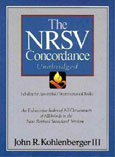
Concordances may be exhaustive, complete, or concise. Usage of these terms is not 100% consistent. In addition they may either be either organized by words or topics.
Many Bibles contain small, concise concordances. Many study Bibles contain topical concordances.
Exhaustive concordances contain every reference to a word listed under every word. Complete concordances contain references to each and every verse, using significant terms, though not necessarily under every word in the verse. Concise concordances contain selective references and may not reference all verses.
Concordances with Greek and/or Hebrew Lexicons can be useful, but one should remember that translation is not so simple as just picking a word from a dictionary definition. Such concordances with lexicons are very often abused in discussions about the Bible.
Bible Dictionaries
Bible Dictionaries provide definitions of various Biblical terms, information about places and people, and introductory information about Biblical books. Most information contained in a Bible handbook can be found in a Bible Dictionary, but it will be organized much differently.
The religious views of authors and editors will impact the content of a Bible Dictionary.
See the Energion.com article Bible Study Tools: Bible Dictionary for helpful information on how to get the most from your Bible dictionary.
- Mainstream
HarperCollins Bible Dictionary [Link to Energion Bookshelf review.]
I regard this as a fundamental resource for the serious Bible student. The contributors span the range of Biblical scholarship, and the articles are well selected, concise and to the point. Since this is a single volume Bible dictionary, it has obvious limitations of space, but every bit of space is well used. There are 1248 pages of text plus maps.
Interpreter's Bible Dictionary (5 volumes, Hardcover)
[On CD-ROM with Interpreter's Bible]
I own the CD-ROM version. Because this is five volumes rather than one, it is obviously in much more depth. The contributors are all well-respected scholars in their field. The serious student, teacher or pastor will find this a valuable resource if he has it available.
Anchor Bible Dictionary (6 volumes)
This Bible dictionary set represents more recent scholarship than the Interpreter's Bible Dictionary, though they can be used together with some profit. I don't own a set, but do have access in a library, and I find that it is valuable to read articles in both in order to get a broader perspective.
- Evangelical
Either of the following selections provide an excellent current view of evangelical scholarship on the scriptures. If you are able to afford to have two current single volume Bible dictionaries, then one of these along with the HarperCollins Bible dictionary above would give you a good variety of views.
New International Bible Dictionary
New Bible Dictionary (Intervarsity Press)
Bible Atlases
Oxford Bible Atlas
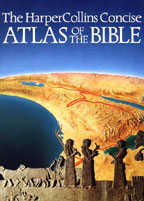 HarperCollins Concise Atlas of the Bible. Paperback and 152 pages, this one may be all the average Bible student needs! HarperCollins Concise Atlas of the Bible. Paperback and 152 pages, this one may be all the average Bible student needs!
The Harper Atlas of World History [Title is out of print]
Zondervan NIV Atlas of the Bible (Premier Reference Series)
Especially designed to go with the NIV.
Guides to Bible Study
How to Study the Bible for Yourself
A basic level introduction to Bible study, somewhat reduced in value by the extent to which the author's view of the Bible and particularly his specific prophetic interpretations color the text. Nonetheless, the new Bible student will benefit especially from the early chapters. [Energion Review (coming soon)].
How to Read the Bible for All Its Worth
Gordon Fee is one of the foremost evangelical exegetes of the New Testament. His work on the New International Commentary, both as editor and as author is exemplary. He has a good eye for what is of practical interest to the preacher. This book, co-authored with Douglas Stuart will give the serious student the tools necessary to make his or her own reading of the Biblical text and to do so with confidence. It requires more effort than LaHaye's book (above), but is not as difficult as more serious and specific works, such as Fee's New Testament Exegesis or Chisholm's From Exegesis to Exposition. [Energion Review (coming soon)].
How to Read the Bible Book by Book
This guide overlaps with Bible handbooks, but it is designed to work well with How to Read the Bible for all Its Worth which is listed above. It covers less of the history, archeology, geography and other general factors and focuses on introductions to each book along with outlines and comments to help the reader draw his or her own conclusions from the text. The theology is evangelical. [Energion Review (coming soon)].
Some Definitions:
Mainstream: Materials which would be suitable for use in departments of religion at secular universities. This does not imply more or less correct in content.
Interfaith: Involving persons other than those of one faith (Christians and Jews, for example). Distinguish from interdenominational.
Interdenominational: Involving persons from more than one Christian denomination. Distinguish from interfaith.
| 






